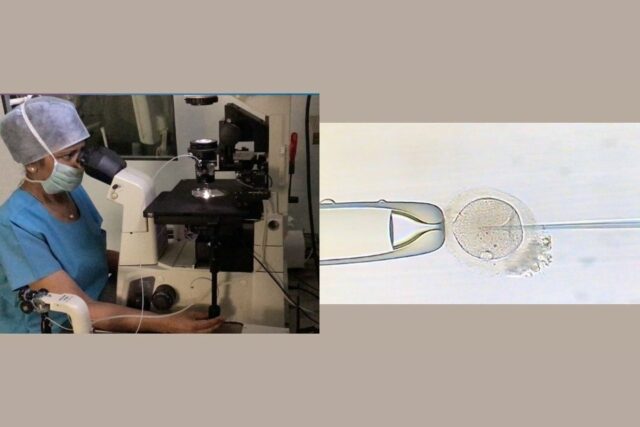January 13: Rising cases of infertility among couples is a cause of concern globally. Infertility is usually understood as a female related issue, and she is the one who has to undergo medical investigations and treatment. In spite of data suggesting that one-third of the infertility cases are due to issues in males, male infertility is still a social stigma in our society.
Ms Goral Gandhi, a Consultant Clinical Embryologist in Mumbai and the Founder and Scientific Director at Global Fertility Solutions, explains that any health issue in a man that lowers the chances of his fertile female partner getting pregnant is termed as Male infertility. 90% of male infertility problems are related to sperm abnormalities. Other than that, illnesses, chronic health problems, anatomical problems, hormonal imbalances, genetic defects, injuries, lifestyle choices and other factors may also contribute to male infertility.
In the following write up, Ms Goral Gandhi tries to make us understand some of the common interrogations associated with Male infertility.
Understanding Sperm Abnormalities
Fertility in men is a complex process. To have your partner conceive, men should produce healthy sperm in high numbers. These sperms should be properly ejaculated, and finally, the sperms must be functional and able to move (motility).
Male infertility arises when any one of the following happens:
- Absent sperm count – A condition where the male is sexually fit but unable to ejaculate any sperm cell is called Azoospermia,
- Poor sperm count –A condition where the sperm count is lower than normal is called Oligozoospermia
- Poor sperm motility: Referred to as Asthenozoospermia, where the sperm movement is slow and not in a straight line
- Abnormal Sperm Morphology: Teratozoospermia is when the sperms are not in normal size and shape for fertility, which means that the sperms have a poor morphology.
- Poor sperm count, motility and morphology – In certain severe conditions, the semen may have very few sperms with poor motility as well as poor morphology. This is known as Oligoasthenoteratozoospermia.
Sperm abnormalities are mainly caused due to diverse factors, including congenital birth defects (Undescended testicles or Chromosome defects), infections, Defects of tubules, chemical exposure, excessive exercise, drugs, consumption of alcohol, obesity, etc.
Symptoms of Male Infertility:
The most prominent symptom is that even after one year of marriage and having unobstructed intercourse, the couple cannot conceive. There are some other underlying signs and symptoms you may notice. These include:
- Variations in sexual desire
- Pain swelling or lumps in the testicles
- Problems with erections and ejaculation and other sexual function
- Regular respiratory infections
- The abnormal body hair growth or breast growth (gynecomastia)
Management and treatment by experts- Ms Goral Gandhi
Through advanced technologies, experts easily investigate and diagnose your sperm abnormalities and assist you with a broad list of therapies.
First, a simple test such as Semen analysis is conducted to assess the formation and maturity of sperm and how the sperm interacts in the seminal fluid. It remains the fundamental investigation and single most useful test to investigate infertility condition in the male partner. Advanced tests like Sperm DNA Fragmentation Index are of great value in determining sperm functions and chances of successful fertilization, believe Mrs Goral Gandhi. When indicated, the doctor can also go for an ultrasound and genetic testing.
After diagnosis, the specialist will assist you with a broad list of therapies such as Intrauterine Insemination (IUI) & Intracytoplasmic Sperm Injection (ICSI), Surgery, etc. In cases of Oligozoospermia, Asthenozoospermia, and Teratozoospermia, ICSI is one of the key treatment processes and is termed as a great boon for all male patients with poor semen quality issues. When combined with surgical testicular sperm retrieval procedures, this treatment works best for patients with blocked or abnormal ejaculatory ducts or Azoospermia, along with disruptive pathology. Further, conditions like palpable varicocele can be corrected by microsurgery or laparoscopy.
For further details, clarification and information,
Connect with Ms Goral : +91 9821618106; [email protected]; www.goralgandhi.com
Read more:































